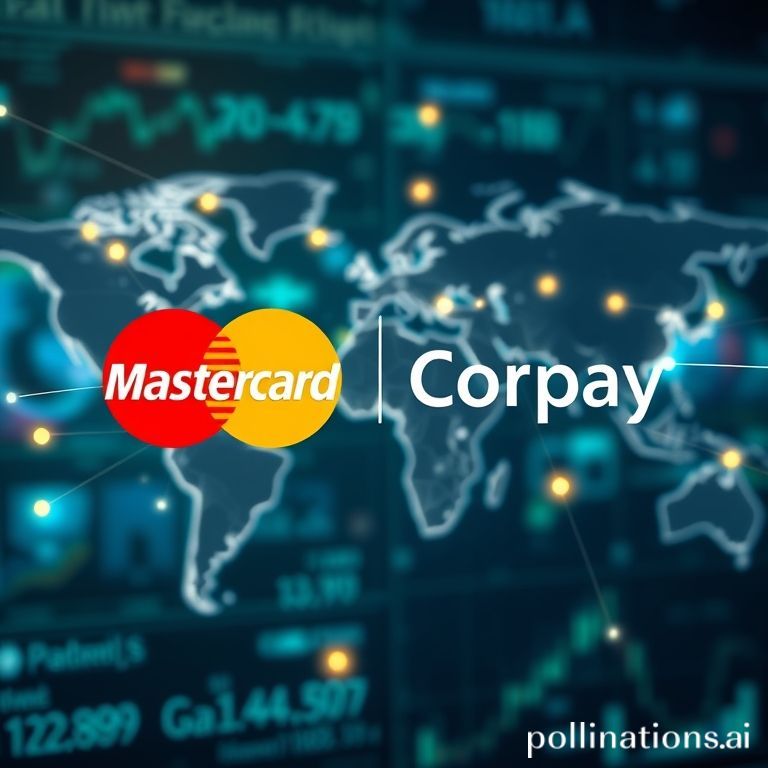
Mastercard, a global leader in payment technology, has significantly broadened its strategic alliance with Corpay, a prominent corporate payments firm. This enhanced collaboration aims to revolutionize the landscape of global financial transactions by extending near real-time payment capabilities to an impressive 22 new markets spanning across Asia, Europe, the Middle East, Africa, and Latin America. This initiative, announced in a recent press release, empowers corporations, small and medium-sized businesses (SMBs), and financial institutions with unprecedented speed and efficiency in their cross-border payment operations.
The Genesis of an Expanded Partnership
The deepening of the partnership between Mastercard and Corpay builds upon a foundation of mutual commitment to innovation in the payments sector. The primary objective is to streamline and accelerate international transactions, addressing long-standing pain points associated with traditional cross-border payment methods. By leveraging their combined expertise and technological infrastructures, both entities are poised to deliver a more agile, transparent, and reliable payment ecosystem for businesses operating on a global scale.
Pratik Khowala, Global Head of Transfer Solutions at Mastercard, emphasized the strategic importance of this expansion. “By expanding our strategic collaboration with Corpay, we’re enabling financial institutions to seamlessly access new markets, optimize their cross-border payment operations, and deliver a superior experience to their customers,” Khowala stated. He further added, “At the same time, we’re helping companies of all sizes scale internationally, unlocking new growth opportunities with unmatched speed, reach and reliability.” This statement underscores the dual benefit of the partnership: empowering financial intermediaries and directly facilitating global commerce for businesses.
Addressing the Surge in Cross-Border Payments
The timing of this expanded partnership is particularly pertinent given the burgeoning volume of global cross-border payments. Projections indicate that these transactions are set to exceed a staggering $250 trillion by 2027, driven by robust international trade, increasing corporate disbursements, and a rise in peer-to-peer remittances. This substantial growth highlights a critical demand for sophisticated, efficient, and scalable payment solutions capable of handling such an immense flow of capital across diverse geographies.
Challenges Faced by Small and Medium Businesses
Despite the immense opportunities presented by global commerce, small and medium-sized businesses have historically encountered significant hurdles when engaging in cross-border payments. Unlike their larger multinational counterparts, SMBs often lack the deep pockets, dedicated treasury teams, and intricate infrastructure necessary to navigate the complexities of international financial transfers. This disparity has traditionally limited their participation and competitiveness in the global marketplace.
- High Fixed Costs: SMBs frequently face disproportionately high fixed costs associated with cross-border transactions, diminishing their profit margins and increasing the overall expense of international trade.
- Extended Settlement Times: The settlement of cross-border payments can stretch from several days to over a week, a delay that often creates substantial working capital pressures and impedes the efficiency of supply chains for smaller enterprises.
- Lack of Transparency: The process often suffers from a lack of transparency, where payments can seemingly vanish into a "black box" of intermediaries. This opacity results in limited tracking capabilities and minimal recourse in the event of disputes, exacerbating operational risks for SMBs.
These inherent frictions have long served as barriers, making global commerce primarily the domain of large enterprises equipped to absorb such operational overheads and complexities. The narrative of international trade was, for decades, defined by those with robust financial and infrastructural capabilities.
A Shifting Landscape: Digital Innovation in Payments
The current landscape of cross-border payments is, however, undergoing a profound transformation. The emergence of innovative FinTech platforms, the widespread adoption of digital wallets, and the increasing integration of solutions like stablecoins are fundamentally re-architecting the economics and workflows of international transactions. These digital advancements are collectively driving down costs, enhancing speed, and improving transparency, thereby democratizing access to global commerce for businesses of all sizes.
Mastercard and Corpay’s expanded partnership is a direct response to this evolving digital paradigm, seeking to capitalize on these technological advancements to deliver superior payment experiences. By offering near real-time capabilities across a broader network, they are actively contributing to the development of a more inclusive and efficient global financial system.
Building on a Foundation: Previous Strategic Moves
This latest expansion is not an isolated event but rather a logical progression of strategic moves initiated earlier in the year. In April, Mastercard demonstrated its commitment to Corpay's vision by investing in a 3% stake in Corpay's cross-border business. This significant investment was accompanied by a series of exclusive agreements designed to solidify their collaborative efforts.
Under these agreements, Corpay was designated as the exclusive provider of currency risk management and integrated large-ticket cross-border payments solutions to Mastercard’s extensive network of financial institution customers. Conversely, Mastercard secured the position as the exclusive provider of virtual card programs to Corpay’s clientele. Furthermore, Corpay’s customers gained direct access to Mastercard Move’s comprehensive suite of cross-border services, further enhancing their capabilities in global payments.
These preceding agreements laid the groundwork for the current expansion, fostering a symbiotic relationship where both companies leverage each other's strengths to offer a more holistic and competitive suite of payment solutions. The integrated approach ensures that businesses and financial institutions can access a wider array of services, from payment processing to currency risk management, all within a unified framework.
Conclusion
The expanded partnership between Mastercard and Corpay marks a pivotal moment in the evolution of global cross-border payments. By extending near real-time payment access to 22 new markets, the collaboration is set to significantly alleviate the operational burdens faced by businesses, particularly SMBs, engaged in international trade. This strategic alliance not only enhances efficiency and transparency but also unlocks new avenues for growth and scalability, reinforcing the critical role of digital innovation in shaping a more interconnected and accessible global financial ecosystem for the future.
